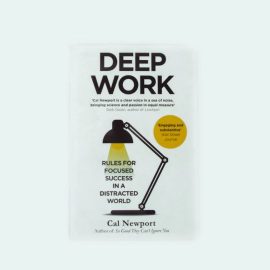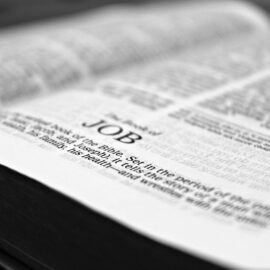

This article is an excerpt from the Shortform book guide to "Friends, Lovers, and the Big Terrible Thing" by Matthew Perry. Shortform has the world's best summaries and analyses of books you should be reading.
Like this article? Sign up for a free trial here.
When did Matthew Perry’s alcoholism start? Why did he have a hard time quitting after his first drink?
In Friends, Lovers, and the Big Terrible Thing, actor Matthew Perry reveals his first experience with alcohol and how it shaped his life forever. Alcohol became a way for Perry to forget his struggles during his teenage years and it only got worse because of his father’s habits.
Let’s look at how Perry used alcohol as a coping mechanism at such a young age.
Using Alcohol to Cope
Many people have their first alcohol drink at a young age, but some people’s first drink turns into dangerous alcoholism. Matthew Perry had his first alcoholic drink at 14, which marked the beginning of his substance use as a way to cope with his inner turmoil. He and his best friends, the Murray brothers, were alone in Perry’s house. As usual, there were no adults in the house and they got hold of beer and wine. They drank together, but although the brothers felt sick and threw up, Perry felt great and found a calm he had never felt before in which the scary thoughts that plagued him dissipated.
(Shortform note: While Perry had his first alcoholic drink at a young age, he was actually older than the average age today’s teenagers have their first drink. Boys, on average, have their first drink at age 11, while girls have theirs slightly later, at age 13.)
A year later, he moved to LA to live with his father and his exposure to alcohol intensified. He claims he learned how to drink from his father, who would get home each day, make himself a drink, and comment on how that drink was the best part of his day. That sense of relaxation and relief made a big impression on Matthew.
(Shortform note: Perry’s experience fits what researchers know about risk factors for underage drinking. First, according to research, teenagers with certain psychological characteristics, such as being anxious or struggling in social contexts, have a higher risk of drinking from a young age. Second, children of people who abuse alcohol, like Perry’s father, are more likely to become alcoholics themselves. This might be because of hereditary factors, such as a higher tolerance to the effect of alcohol, or because of environmental factors, such as growing up in settings where alcohol use is seen as positive.)
At first, drinking had positive effects. For example, he was uncomfortable in social situations, but drinking made him feel at ease, which made socializing easier. In fact, he claims he would still drink if he went back in time and did things differently because in his youth, the alternative to drinking would have been worse: loneliness.
(Shortform note: Perry’s claim that alcohol had some positive effects is a somewhat unusual belief for a recovering alcoholic. In Quit Like a Woman, Whitaker argues that alcohol is nothing short of a poison that destroys the body. Even a small amount of alcohol is bad for us, she says, because whatever effect the drink has—making us relaxed and happy—the body will seek to undo it to reinstate homeostasis, a proper bodily balance. It does this by making us tense and anxious after drinking, the exact opposite of the effect Perry was looking for.)
However, he soon began drinking alone, too. He began to suspect he had a problem with alcohol when he noticed that he was drinking every day and that other people didn’t get as restless as he did when there was no alcohol available. But instead of trying to reduce his dependence on alcohol, he began drinking alone because he felt ashamed.
(Shortform note: The experience Perry describes reflects the way shame works to keep people trapped in loneliness and inaction. In The Power of Vulnerability, Brené Brown argues that shame causes people to believe that their experience is unrelatable, creating a sense of loneliness, which makes them avoid sharing their insecurities. But talking about shame is the only way to diminish its power because, once you know that you’re not alone, shame loses its leverage. If Perry had opened up to others about his drinking instead of hiding it, he might have realized that others struggle with similar problems, lessening the shame he felt about his behavior and enabling him to take action on his problem.)
Overcoming Alcoholism
At 52, Perry has managed to beat some of his unhealthy patterns. At the time of writing his memoir, after multiple health crises and 14 surgeries, Perry is sober. He claims he quit alcohol and opiates because he got to a point where he needed too many drinks or pills to feel anything. The fear of living with a colostomy bag forever and the fear of dying before learning how to love also helped him quit. Today, he’s on Suboxone, which helps him avoid taking other opiates but makes him depressed.
However, despite being sober, he argues that addiction is a patient disease—it can wait for the right time to resurface. He believes he can only beat it with the support of his loved ones and by fighting it one day at a time. He also thinks that if he loses his sobriety again, he would likely die since he has such a high tolerance for drugs and alcohol. If he relapsed, he would have to take an enormous amount, which would put his life in immediate danger.

———End of Preview———
Like what you just read? Read the rest of the world's best book summary and analysis of Matthew Perry's "Friends, Lovers, and the Big Terrible Thing" at Shortform.
Here's what you'll find in our full Friends, Lovers, and the Big Terrible Thing summary:
- Actor Matthew Perry's autobiography about health, loneliness, and addiction
- Words of hope for those who are currently struggling with substance abuse
- A look into Perry's childhood, his time on Friends, and his life after Friends






